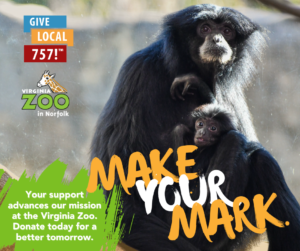Engage
Live animal presentations
The Virginia Zoo offers a wide variety of exciting opportunities to enhance your visit. Check out the schedule for a chance to meet with a keeper or animal care staff, chat with an educator, or even encounter animal ambassadors up-close!



